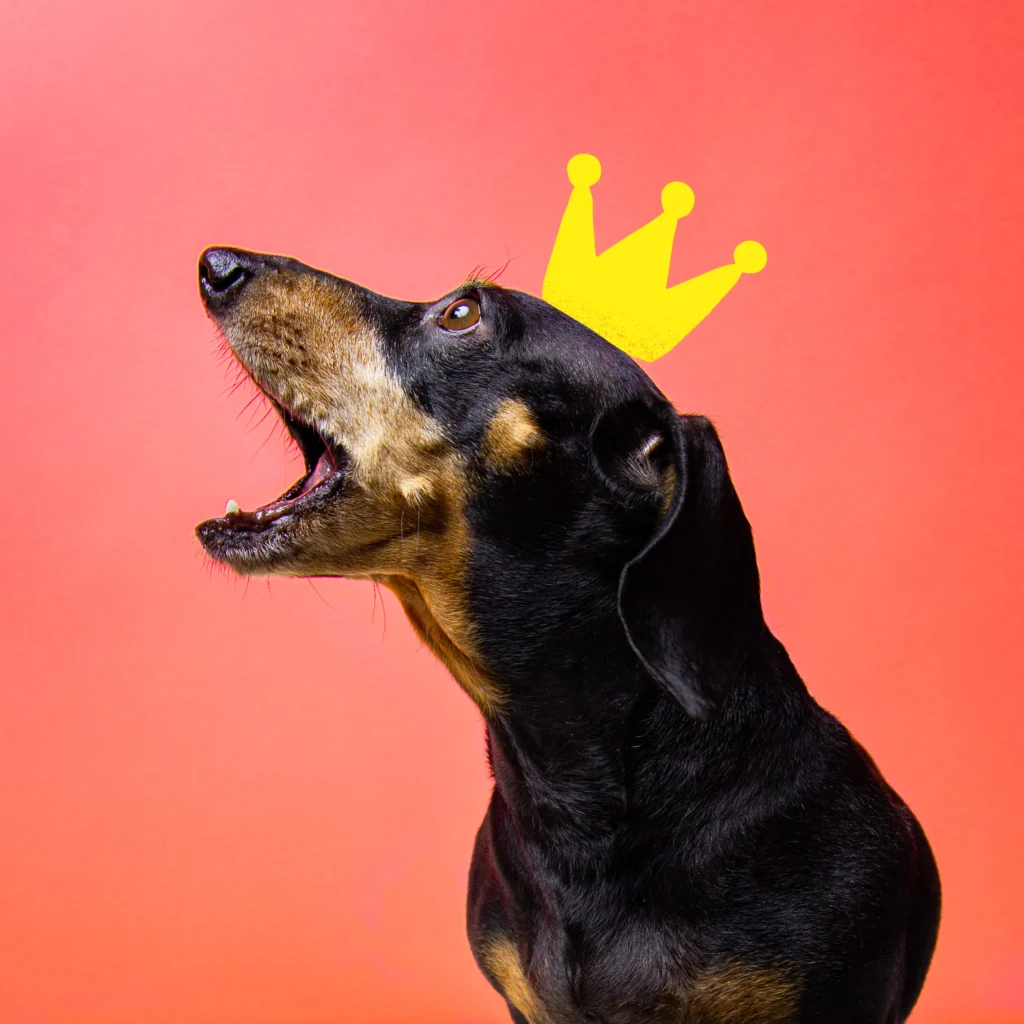As a dog lover at PetSWAT, I have encountered many different breeds throughout my career. One breed that stands out for its unique challenges is the Dachshund. Why Dachshunds are the worst breed for first-time dog owners? These small, long-bodied dogs are known for their adorable appearance and lively personalities. However, owning a Dachshund comes with its own set of difficulties that potential owners should be aware of.
Before bringing any dog into your home, it is crucial to do thorough research about the breed and understand their specific needs and characteristics. This will help you make an informed decision about whether a Dachshund is the right fit for your lifestyle and capabilities as a dog owner.
Dachshunds are not ideal for first-time dog owners due to their stubborn nature and independent streak. They require experienced handlers who can provide consistent training and firm leadership. In this article, I will delve deeper into the challenges faced by Dachshund owners, providing insights based on personal anecdotes and professional expertise.
Key Takeaways
- Dachshunds are stubborn and difficult to train.
- They have a high prey drive and can be aggressive towards other animals.
- Dachshunds are prone to separation anxiety and destructive behavior.
- They have a high energy level and require daily exercise.
- Dachshunds have a strong personality and can be challenging to handle.
Dachshunds are Stubborn and Difficult to Train
One of the most prominent traits of Dachshunds is their stubbornness. These dogs have an independent nature that can make training quite challenging at times. As someone who has owned multiple Dachshunds over the years, I can attest to this firsthand.
When it comes to training a Dachshund, patience is key. They may not respond well to traditional obedience methods or repetitive commands like other breeds do. Instead, they require creative approaches that cater to their individuality.
For example, one technique that worked well with my own Dachshund was using positive reinforcement through treats or praise whenever he followed commands correctly or exhibited desired behavior. This helped motivate him while also building trust between us.
It’s important not to get discouraged if progress seems slow at first; consistency is key when working with these stubborn little dogs. With time and dedication, you can overcome their training challenges and have a well-behaved Dachshund companion.
They Have a High Prey Drive and Can Be Aggressive Towards Other Animals
Dachshunds were originally bred for hunting small game, such as badgers. This heritage has left them with a strong prey drive that can manifest in aggressive behavior towards other animals.
It is crucial to socialize your Dachshund from an early age to minimize the risk of aggression towards other pets or animals. Exposing them to different environments, people, and animals will help them develop proper social skills and reduce their instinctual reactions.
When I first brought my Dachshund home, I made sure to introduce him gradually to my other pets under controlled circumstances. This allowed him to become familiar with their presence without feeling threatened or territorial.
Training is also essential in managing any potential aggression issues. Teaching your Dachshund basic obedience commands like “sit,” “stay,” and “leave it” can help redirect their focus away from potential triggers.
Dachshunds are Prone to Separation Anxiety and Destructive Behavior
| Behavior | Description |
|---|---|
| Separation Anxiety | Dachshunds are prone to separation anxiety and may become destructive when left alone for long periods of time. |
| Destructive Behavior | Dachshunds may exhibit destructive behavior such as chewing, digging, and scratching when they are bored or anxious. |
| Training | Proper training and socialization can help prevent separation anxiety and destructive behavior in Dachshunds. |
| Exercise | Dachshunds require regular exercise and mental stimulation to prevent boredom and destructive behavior. |
| Environment | Creating a safe and comfortable environment for your Dachshund can also help prevent separation anxiety and destructive behavior. |
Dachshunds are known for forming strong bonds with their owners, which can lead to separation anxiety when left alone for extended periods of time. This anxiety often manifests in destructive behaviors such as excessive barking, chewing furniture or belongings, or even soiling the house.
To prevent separation anxiety in your Dachshund, it’s important to gradually acclimate them to being alone for short periods of time from an early age. Start by leaving them alone for just a few minutes at first and gradually increase the duration over time.
Providing mental stimulation through interactive toys or puzzles can also help alleviate boredom while you’re away. Additionally, crate training can provide a safe space where your Dachshund feels secure when you’re not around.
Consistent training and socialization are crucial in preventing destructive behaviors. Teaching your Dachshund appropriate outlets for their energy, such as puzzle toys or interactive play sessions, can help redirect their focus away from destructive tendencies.
They Have a High Energy Level and Require Daily Exercise
Despite their small size, Dachshunds have a surprisingly high energy level. They require regular exercise to keep them physically and mentally stimulated. Neglecting this need can lead to behavioral issues or weight gain.
Daily exercise is essential for a happy and healthy Dachshund. This can include walks, playtime in the yard, or even participating in dog sports like agility or obedience trials.
When it comes to exercise routines for Dachshunds, it’s important to strike a balance between physical activity and rest periods. Overexertion can be harmful due to their long backs and short legs, which puts them at risk of spinal injuries.
In my experience with my own Dachshunds, I found that incorporating mental stimulation alongside physical exercise was beneficial in keeping them engaged and content. Activities like puzzle toys or scent games helped tire them out mentally while also providing an outlet for their natural instincts.
Dachshunds are Prone to Obesity and Health Issues
Dachshunds have a tendency to gain weight easily if not properly managed through diet and exercise. Their long bodies put extra strain on their spines, making excess weight particularly detrimental to their overall health.
To prevent obesity in your Dachshund, it’s important to provide a balanced diet that meets their nutritional needs without overfeeding them. Consult with your veterinarian about the appropriate portion sizes based on your dog’s age, size, activity level, and overall health condition.
Regular vet check-ups are crucial for monitoring your Dachshund’s weight as well as identifying any potential health issues early on. Conditions such as intervertebral disc disease (IVDD) are common in Dachshunds due to their long backs, and maintaining a healthy weight can help reduce the risk of spinal problems.
In addition to a proper diet, regular exercise is essential for weight management and overall health. Engaging your Dachshund in daily physical activities will not only keep them fit but also provide mental stimulation that is equally important for their well-being.
They Can Be Difficult to Groom and Require Regular Maintenance
Dachshunds have a unique coat that requires regular grooming to keep it clean and healthy. Their short hair or long, silky fur can easily become tangled or matted if not properly maintained.
Regular brushing is necessary to prevent matting and remove loose hair. For smooth-coated Dachshunds, a soft bristle brush or rubber grooming mitt can be used. Long-haired Dachshunds may require more frequent brushing with a slicker brush or comb to prevent tangles.
Bathing should be done as needed, typically every few months unless your Dachshund gets particularly dirty or smelly. It’s important to use dog-specific shampoos that are gentle on their skin and coat.
Trimming your Dachshund’s nails regularly is also crucial for their comfort and mobility. Overgrown nails can cause pain when walking or running, so it’s important to keep them at an appropriate length.
Lastly, don’t forget about dental care! Dental hygiene plays an essential role in your Dachshund’s overall health. Regular teeth brushing with dog-friendly toothpaste helps prevent tartar buildup and gum disease.
Dachshunds Have a Strong Personality and Can Be Challenging to Handle

Dachshunds are known for their strong-willed nature which can make them challenging dogs to handle at times. They have big personalities packed into small bodies, often displaying confidence that exceeds their size.
To successfully manage the strong personality of a Dachshund, consistent training and firm leadership are essential. They need to understand that you are the pack leader and that they must follow your commands.
Positive reinforcement techniques work well with Dachshunds, as they respond better to rewards and praise rather than harsh discipline. Consistency is key in establishing boundaries and expectations for their behavior.
Socialization is also crucial in managing their strong personalities. Exposing them to different people, animals, and environments from an early age will help them become well-rounded dogs who can adapt to various situations.
They Are Not Ideal for Families with Young Children
While Dachshunds can make wonderful family pets, they may not be the best choice for families with young children. Their small size makes them more susceptible to accidental injuries caused by rough play or mishandling.
Young children may not fully understand how to interact appropriately with a dog, which can lead to unintentional harm or stress for both the child and the dog. It’s important to consider the potential risks before bringing a Dachshund into a household with young children.
If you do have young children and still want a Dachshund as part of your family, it’s crucial to supervise all interactions between them closely. Teach your children how to handle dogs gently and respectfully while also setting boundaries for both parties’ safety.
Dachshunds Require a Lot of Attention and Socialization
Dachshunds thrive on attention from their owners and require regular social interaction for their overall well-being. They are not dogs that can be left alone for long periods without human companionship.
Spending quality time with your Dachshund is essential in building a strong bond between you two while also providing mental stimulation that keeps them happy and contented.
Engaging in activities such as interactive play sessions or training exercises helps keep their minds sharp while strengthening the bond between you as owner and dog.
Socialization is equally important for Dachshunds. Exposing them to different people, animals, and environments from an early age helps them develop proper social skills and reduces the risk of fear or aggression towards unfamiliar situations.
Suitable Breeds For First Time Dog Owners

Several dog breeds are well-suited for first-time dog owners due to their friendly nature, adaptability, and trainability. Here are some popular choices:
- Labrador Retriever: Labradors are known for their friendly and outgoing personalities. They are easy to train, good with children and other pets, and generally have a gentle temperament.
- Golden Retriever: Like Labs, Golden Retrievers are friendly, intelligent, and easy to train. They are great family dogs and tend to get along well with everyone.
- Beagle: Beagles are friendly, curious, and energetic dogs. They are generally good with families and other pets. Beagles do require regular exercise and mental stimulation to keep them happy.
- Cavalier King Charles Spaniel: Cavaliers are affectionate, gentle, and adaptable dogs. They enjoy being around people and are generally good with children and other pets. They have moderate exercise needs and are easy to train.
- Poodle: Poodles come in three sizes: Standard, Miniature, and Toy. They are intelligent, versatile, and highly trainable dogs. Poodles are also hypoallergenic, making them a good choice for people with allergies.
- Bichon Frise: Bichon Frises are cheerful, affectionate, and social dogs. They are relatively low-shedding and are good for people with allergies. Bichons enjoy being around people and are generally good with children and other pets.
- Shih Tzu: Shih Tzus are affectionate, outgoing, and adaptable dogs. They are good for apartment living and don’t require a lot of exercise. Shih Tzus enjoy being around people and are generally good with children and other pets.
When choosing a dog breed, it’s essential to consider factors such as the dog’s size, exercise needs, grooming requirements, temperament, and compatibility with your lifestyle and living situation. Additionally, adopting a dog from a shelter or rescue organization can be a rewarding experience and provide a loving home to a dog in need.
Is a Dachshund Right for You?
In conclusion, owning a Dachshund comes with its own set of challenges and responsibilities. These adorable little dogs require experienced handlers who can provide consistent training, firm leadership, and plenty of attention.
Dachshunds are not ideal for first-time dog owners due to their stubborn nature and independent streak. They have a high prey drive that can lead to aggression towards other animals if not properly managed through training and socialization.
Separation anxiety is common in Dachshunds due to their strong attachment to their owners. Preventing destructive behaviors requires gradual acclimation to being alone, mental stimulation, and consistent training.
Their high energy level necessitates daily exercise routines that strike a balance between physical activity and rest periods. Obesity is a common health issue in Dachshunds that can be prevented through proper diet management and regular vet check-ups.
Grooming is an essential part of caring for your Dachshund’s unique coat. Regular maintenance such as brushing, bathing, nail trimming, and dental care ensures their health and hygiene are maintained.
Dachshunds have strong personalities that require consistent training techniques based on positive reinforcement methods. They may not be suitable for families with young children due to potential risks associated with mishandling or rough play.
Lastly, providing ample attention and socialization activities are crucial in keeping your Dachshund happy while also strengthening the bond between you two as owner and dog.
Before bringing any dog into your home, it’s important to consider your lifestyle, capabilities as a dog owner, as well as the specific needs of the breed you’re interested in. Owning any pet requires dedication, time, and effort to ensure their well-being and happiness.
In the case of Dachshunds, their unique challenges should be carefully considered before making a decision. However, with the right knowledge, commitment, and love, owning a Dachshund can be an incredibly rewarding experience that brings joy and companionship for many years to come.
FAQs
What is the article about?
The article is about why Dachshunds are not recommended for first-time dog owners.
What are Dachshunds?
Dachshunds are a breed of dog that originated in Germany. They are known for their long bodies and short legs.
Why are Dachshunds not recommended for first-time dog owners?
Dachshunds are not recommended for first-time dog owners because they can be difficult to train, have a stubborn personality, and are prone to health issues.
What are some common health issues that Dachshunds face?
Dachshunds are prone to back problems, obesity, dental issues, and skin allergies.
Are there any positives to owning a Dachshund?
Yes, Dachshunds are loyal and affectionate dogs that make great companions for those who are experienced with their unique personality traits.
What should first-time dog owners consider when choosing a breed?
First-time dog owners should consider a breed that is easy to train, has a friendly personality, and is not prone to health issues. It is also important to consider the size and energy level of the breed.
Originally posted 2024-01-26 02:47:29.
Johny is a dedicated pet enthusiast, author, and the driving force behind the insightful content at PetSWAT. With a deep passion for animals and a wealth of knowledge acquired through years of experience, Johny brings a unique perspective to the world of pet care and companionship.





